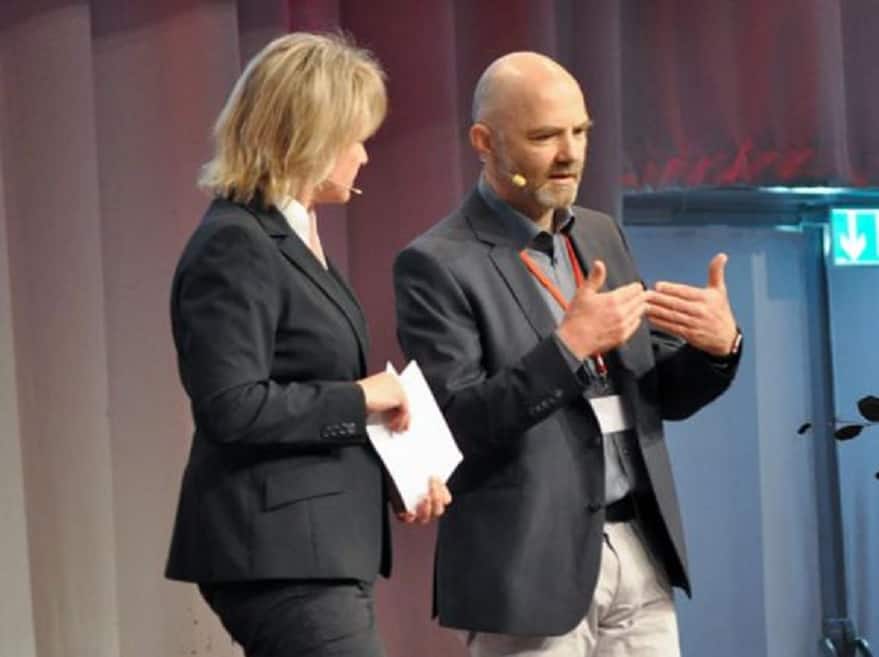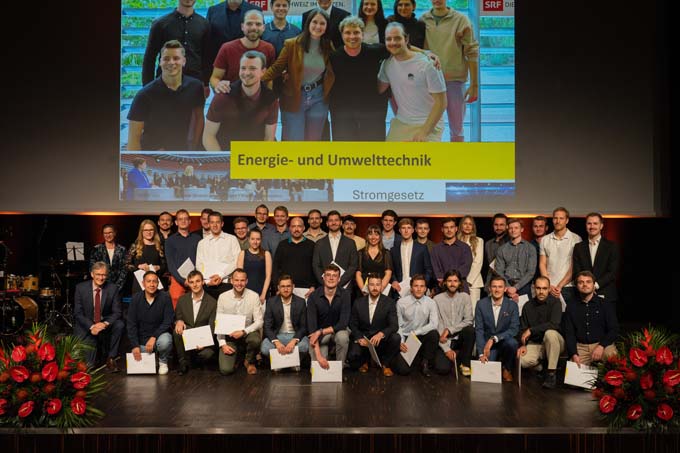The future of QMS
This year's "Swiss Quality Day" was all about future prospects. On 30 May 2018, around 380 interested parties took a look at modern work organisations and examined work processes. The congress organised by the SAQ and the SQS in the Kursaal Bern once again provided some highlights.

How, they asked themselves on Swiss Quality Day 2018, could they keep up with the times and optimise work processes? "Everything is changing. Processes have to be adapted - certainly perspectives are needed: Considerations from an existing point of view", Peter Bieri, Managing Director of the Swiss Association for Quality (SAQ), opened this year's Swiss Quality Day in front of around 380 motivated quality managers.
New forms of work
"Actually," said Prof. Dr. Jens O. Meissner, "organizations have always been subject to change, see virtual processes and innovations in the 1980s," said the Professor of Organization and Innovation, co-director of the master's program in Risk Management at the Lucerne University of Applied Sciences and Arts (HSLU), introducing developments in creativity and resilience research. In itself, digitalization is nothing new in process development. However, technological developments, such as 24/7 presence and progressive processes, have transformed the world of work in recent years to such an extent that new expectations and risks have emerged. Taking the trend towards agile methods as an example, Meissner mentioned that agile working methods could increase success by a factor of five. However, in his opinion, there are now too many agile methods; these tend to overtax organizations and lead to stress.
In order to be able to react to changing circumstances, web-based companies such as Amazon, Uber or Spotify no longer rely on typical work hierarchies, but on so-called holocracies (see also Management & Quality 2018/05): Self-organisation is strongly emphasised, groups determine themselves to whom reports are made. However, a self-experiment at the Lucerne University of Applied Sciences and Arts revealed rather ambivalent experiences. "Today we are rowing back a bit," Meissner concludes. Because the complexity and the coordination costs are high.
"Our society," says Jens Meissner, "is experiencing transparency and participatory involvement opportunities demanded through all levels." Likewise, says the resilience researcher, there are not only more favorable work structures in larger networks and companies, but also silo perceptions and "risks that are being encapsulated ever more quickly."
Man or machine?
What effects do such trends and changing role models have on people? Prof. Dr. Toni Wäfler from the FHNW University of Applied Sciences Northwestern Switzerland gave a concrete introduction to "Human-Technology Interaction in the Digitalized World of Work" in the second conference presentation. It spoke both of specialization through new technologies and of a dissolution of organizational boundaries. Technology is increasingly becoming a service and the "sharing economy" is growing. More and more, only the functionalities would be purchased, not the machines. The consequence of this: More and more personnel from different employers are moving around in companies. This requires new approaches in management, for example in the form of more direct communication and flatter hierarchies.
The professor is in favour of the fact that adaptive systems (keyword artificial intelligence) offer immense opportunities in monotonous processes or in highly critical areas. The "human being remains a bearer of experience" as long as he makes decisions, takes responsibility and shows commitment, according to some of the reasons given by the FHNW lecturer.
Ultimately, it was important not to deal passively with digital change processes. Toni Wäfler said that people and employees could certainly make use of perspectives and potential if they "not only complemented" the machine, but were able to justify their actions and negotiate with other people. The future lies in "human-machine-teaming", whereby it is the human who asks the right questions and interprets the answers correctly.
Quality managers among themselves
Quality has led the Swiss economy to success. In times of change, it is more important than ever before. Quality managers are therefore even more challenged. Beat Häfliger, Managing Director of SAQ-Qualicon AG, took the audience deep into the world of SQS auditors and SME representatives with a kind of "future workshop". He took the conference guests on an expedition where QM managers reported on their professional roles "yesterday - today - tomorrow". Representatives of SMEs and companies shed light on their personal challenges, turning points and concrete implementations of management models. Ulrike Sollmann, Head of Quality Management, gave an introduction to corporate and compliance management at Hirslanden AG. Michael Baumgartner, Head of Quality, reported on Swisslog AG's modular Warehouse & Distribution Solutions, which are used worldwide. Marco Schöpf, Head of Quality Management, PostMail, reported that each and every employee of Post CH AG had been trained to improve processes - using the Kaizen method originating in Japan.
The conference participants were also able to contribute their experiences and views in a voting system. From this it became clear that one becomes a quality manager primarily as a generalist, that there is a great deal of satisfaction in the job and that one often finds oneself in the role of a "helper in an emergency", a "lateral thinker" or an "eierlegende Wollmilchsau". Furthermore, the majority of the audience was of the opinion that quality management will not be carried out by robots in the future and that methods such as audits, CIP moderation, lean management or risk analyses such as FMEA are still the most common. And despite all the creativity and flexibility, it is still not possible without standards.
Top performance
Developments through digitalisation and globalisation are constantly opening up new perspectives, as well as individual development prospects that would have been almost inconceivable just a few years ago. The Swiss Quality Day provided a balanced spectrum of insights into opportunities and threats. Symbolic values were the subject of the lecture entitled "Change through design - new banknotes for Switzerland", in which the graphic designer Manuela Pfrunder spoke about her more than 13 years of work for the Swiss central bank and about her meticulous redesign of the 10th series of banknotes (see article on the following page).
Other conference speakers such as Frederike Asael, Co-Founder Community Host of the Impact Hub, Bern, and certainly Chrigel Maurer, the multiple world champion in paragliding, also showed a lot of courage and will. Finally, the "Swiss Quality Day" showed once again that top performances of any kind usually require a lot of expertise and preparation time and therefore all the more patience and commitment.









